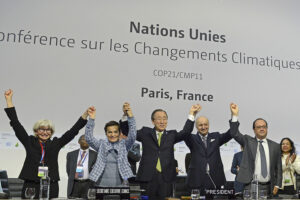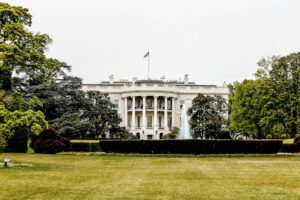The US vs the rest
The West has never been so divided: the re-election of Donald Trump might mark a long-term, historic fracture between the US and the rest of the West. What can we then expect from the G7, the group which has historically represented the interests of a united West?
The agenda promoted by the newly elected Prime Minister Mark Carney, as Canada hosts this year Presidency, is an attempt to demonstrate ongoing cooperation with the US on shared security and economic challenges, such as conflict resolution in Ukraine and the Middle East as well as cooperation on critical raw materials.
Unsurprisingly, any mention of climate change is off the table in formal outcome documents. Many G7 members have pushed to keep climate change a topic at the leaders table but no space for agreement has been found with an ideologically opposed US.
More damaging though would be the political backing of new gas infrastructure and in particular new LNG capacity. As pointed out by the IEA this week, we are at the cusp of “the largest capacity wave in any comparable period in the history of LNG markets.” This would have profound impact on global gas markets at a time when major gas consumers, namely Europe and China, show trends of much lower demand than expected, as both blocks electrify their economy and increase efficiency. Gas has become a very risky investment, and it is Mark Carney, as chief financial expert among G7 leaders, the one who should know it best.
Yet climate action remains a priority for the rest of the table
Of the 15 world leaders expected to attend the G7 Summit, many have recently joined the virtual climate Summit in April hosted by UN Secretary-General António Guterres and Brazilian President Lula while newly elected leaders, such as the Australian Prime Minister Albanese and the new President of Republic of Korea Lee Jae-myung, have made clear commitments to acceleration renewable deployment, massively expand electricity grids and hosting next round of COPs in 2026 and 2028 respectively.
Until last year, the G7 have already made many commitments on climate action and supporting developing countries to adapt and cut emissions. The question is whether now the Western powers still committed to what they signed at COP28 in Dubai can reorganise and deliver on those commitments outside the formal G7/G20 processes, and crucially without the US Administration (while strengthening relations with those US states and sub-national actors that are still committed to climate action).
Canada needs to show some backbone
The G7 Summit is only the first half of a yearlong opportunity for climate action. Canada, as G7 host, still has a chance to convene climate and energy Ministers in the second half of the year ahead of COP30 to take stock of the progress made by G7 and set out how Western powers are going to deliver on their commitments, including on the transition away from fossil fuels, which are the single largest driver of climate change. Mark Caney, who just confirmed he will attend COP30, could showcase in Belem what the G7 – or more accurately the G6 – will be doing to keep the 1.5 degrees global warming limit within reach.
Delivery has two critical components: a plan for domestic transformation that turns the economy into an “electro-state” – lessons can be drawn from the chief global electro-state of China – and redirect the finance away from fossil fuels – which in 2023 alone across the G7 enjoyed $282 billion in subsidies, of which almost half or $134 billion went to mitigate record high gas prices. A first concrete step is to present updated national climate plans this year that would put the economy on a growth path and reduce the economic and social losses of future climate impacts, as shown in the latest OECD-UNDP report.
The second component is relaunching international cooperation underpinned by solid bilateral agreements. Designing new forms of cooperation will require Western powers to work this year closely with South Africa, as host of G20, Brazil, as host of COP30, the potential hosts of future COPs, such as Australia and Republic of Korea, and last but not least China. Canada should consider hosting the 9th Ministerial on Climate Action with China and the EU as coherent follow-up from previous meetings.
There is much re-inventing to do. From international climate governance to reforms of the international financial system, the overwhelming majority of countries have a core security and economic interest in advancing climate change, which is still the largest and most complex threat to peaceful co-existence in this century. New forms of cooperation and alliances must be found around shared goals and visions of economic transformation coherent with the goals signed at COP28 in Dubai.
Foto di Tyler Rutherford








